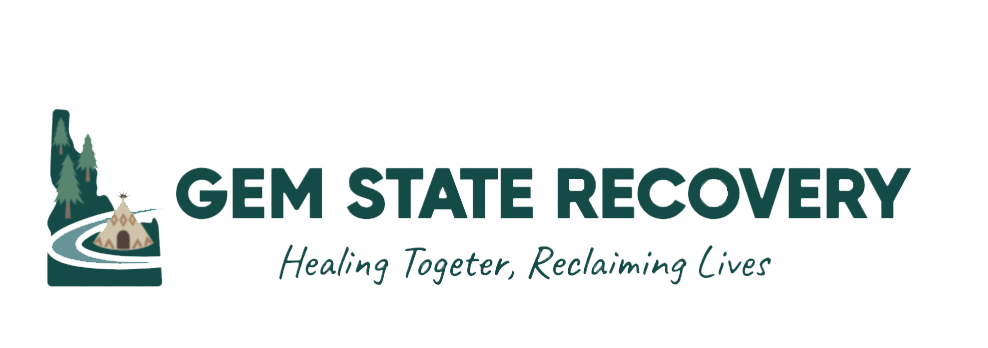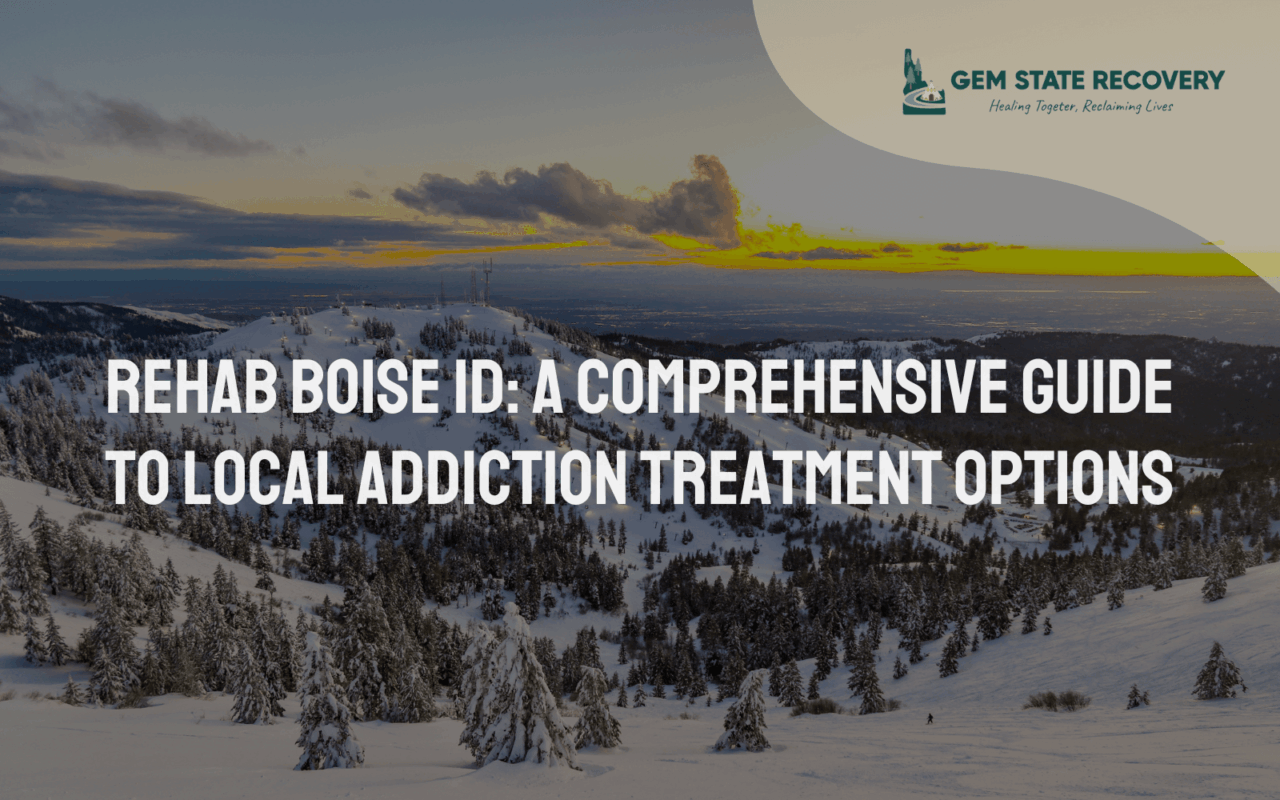Boise ID Rehab
Finding the right addiction treatment can feel overwhelming, especially when you’re navigating the options available in your local area. For individuals and families in Idaho’s capital city seeking recovery support, understanding what rehab Boise ID facilities offer is an essential first step toward healing. This comprehensive guide explores the various treatment programs, therapeutic approaches, and support services available through rehab Boise ID centers, helping you make an informed decision about your recovery journey.
Understanding Addiction Treatment in Boise
Boise has emerged as a hub for quality addiction treatment services, with facilities offering evidence-based approaches to substance abuse and co-occurring mental health disorders. When searching for rehab Boise ID options, you’ll discover a range of treatment modalities designed to address the complex nature of addiction. These programs recognize that recovery isn’t one-size-fits-all and provide individualized care plans tailored to each person’s unique needs, circumstances, and goals. The landscape of rehab Boise ID services includes everything from medically supervised detoxification to long-term residential care, outpatient therapy, and ongoing alumni support. Understanding these options empowers you to choose the level of care that best matches your situation, whether you’re seeking help for the first time or returning to treatment after a relapse.
Detox and Intervention Assistance: The Foundation of Recovery
Medical Detoxification Services
The journey to recovery often begins with detoxification, and rehab Boise ID facilities provide medically supervised detox programs to ensure safety and comfort during this critical phase. Detox services address the physical dependence on substances and help manage withdrawal symptoms that can range from uncomfortable to potentially dangerous. Medical detox programs at rehab Boise ID centers offer:
- 24/7 Medical Monitoring: Healthcare professionals continuously assess vital signs and overall health status to identify and address any complications immediately. This constant supervision ensures that medical interventions can be provided promptly if withdrawal symptoms escalate.
- Medication-Assisted Treatment: Physicians may prescribe FDA-approved medications to ease withdrawal symptoms, reduce cravings, and stabilize brain chemistry affected by prolonged substance use. These medications make the detox process more manageable and increase the likelihood of successful completion.
- Nutritional Support and Hydration: Substance abuse often leads to malnutrition and dehydration. Detox programs provide balanced meals, vitamins, and proper hydration to help the body begin healing from the physical toll of addiction.
- Emotional Support: Withdrawal isn’t just physical—it’s emotionally challenging too. Compassionate staff members provide encouragement and reassurance throughout the detox process, helping clients understand that what they’re experiencing is temporary and that better days are ahead.
Professional Intervention Services
Many families struggle with how to approach a loved one about seeking treatment. Rehab Boise ID facilities often provide professional intervention services that help families communicate their concerns effectively and encourage their loved ones to accept help. Trained interventionists facilitate structured conversations that express care while establishing healthy boundaries, significantly increasing the likelihood that individuals will agree to enter treatment.
Inpatient and Outpatient Treatment: Choosing Your Path
Inpatient Treatment Programs
Inpatient treatment at rehab Boise ID facilities provides the highest level of structured care, with clients residing at the treatment center throughout their program. This immersive approach removes individuals from environments where substance use occurred and provides a safe, supportive space focused entirely on recovery. Inpatient programs typically include:
- Structured Daily Schedules: Each day includes a balance of individual therapy, group counseling, educational sessions, recreational activities, and personal reflection time. This structure helps clients develop healthy routines that support long-term recovery.
- Peer Support Community: Living alongside others in recovery creates powerful connections and reduces the isolation that often accompanies addiction. Clients learn from each other’s experiences and build a support network that can continue after treatment ends.
- Comprehensive Assessment: Clinical teams conduct thorough evaluations to identify co-occurring mental health disorders, trauma histories, and other factors that contribute to substance use, ensuring treatment addresses all underlying issues.
Outpatient Treatment Programs
Outpatient services at rehab Boise ID centers allow individuals to receive professional treatment while maintaining work, school, or family responsibilities. Clients attend scheduled therapy sessions and group meetings but return home each day, making this option ideal for those with strong support systems and lower-risk addiction profiles. Outpatient treatment benefits include:
- Flexibility and Convenience: Sessions are scheduled around other commitments, making recovery accessible to those who cannot take extended time away from daily responsibilities.
- Real-World Application: Clients immediately apply coping strategies and skills learned in treatment to their everyday lives, with therapists available to help troubleshoot challenges as they arise.
- Cost-Effectiveness: Outpatient programs generally cost less than residential options while still providing quality clinical care and support.
Partial Hospitalization Programs and Residential Treatment
Partial Hospitalization Programs (PHP)
PHPs offered through rehab Boise ID facilities bridge the gap between inpatient and outpatient care, providing intensive treatment during the day while allowing clients to return home in the evenings. These programs typically involve 5-6 hours of programming daily, five to seven days per week, and are ideal for individuals who need structured support but have a stable living environment. PHP services include:
- Intensive Therapy: Multiple therapy sessions daily address addiction from various angles, including individual counseling, group therapy, family sessions, and specialized treatment modalities.
- Medical Management: Regular appointments with psychiatric or medical providers ensure any medications are properly managed and adjusted as needed throughout treatment.
- Skills Development: Extensive time in programming allows for in-depth skill-building in areas like emotional regulation, communication, stress management, and relapse prevention.
Residential Treatment
Residential programs at rehab Boise ID facilities provide a home-like setting where clients live for an extended period—typically 30 to 90 days or longer—while receiving comprehensive treatment. These programs offer more freedom than traditional inpatient settings while maintaining the benefits of 24/7 support and structure. Residential treatment features:
- Therapeutic Community Environment: Clients participate in household responsibilities, community meetings, and peer-led activities that build accountability and life skills essential for independent recovery.
- Extended Treatment Duration: Longer stays allow time for deep healing, pattern interruption, and the development of strong recovery foundations before returning to everyday life.
- Gradual Reintegration: As progress is made, clients may receive supervised passes to practice recovery skills in the community before completing treatment.

Evidence-Based Therapeutic Approaches
Eye Movement Desensitization and Reprocessing (EMDR)
EMDR therapy available at rehab Boise ID centers specifically addresses trauma that often underlies addiction. This evidence-based approach helps clients process traumatic memories that may trigger substance use, reducing their emotional charge and power over current behavior. EMDR helps individuals:
- Reprocess traumatic experiences without reliving them in detail
- Reduce symptoms of PTSD, anxiety, and depression that contribute to substance abuse
- Break the connection between past trauma and current addictive behaviors
- Develop healthier coping mechanisms for distressing memories
Cognitive Behavioral Therapy (CBT)
CBT is a cornerstone of addiction treatment at rehab Boise ID facilities, focusing on the relationship between thoughts, feelings, and behaviors. This structured, goal-oriented approach teaches clients to identify negative thought patterns that lead to substance use and replace them with healthier alternatives. CBT techniques include:
- Identifying and challenging distorted thinking patterns that justify substance use
- Developing practical problem-solving skills for high-risk situations
- Learning to recognize and manage triggers before they lead to relapse
- Building confidence in one’s ability to maintain sobriety through proven strategies
Dialectical Behavior Therapy (DBT)
DBT, commonly offered in rehab Boise ID programs, was originally developed for borderline personality disorder but has proven highly effective for addiction, especially when co-occurring with emotional dysregulation. This therapy teaches skills in four key areas: mindfulness, distress tolerance, emotion regulation, and interpersonal effectiveness. DBT helps clients:
- Stay present in the moment rather than escaping through substances
- Tolerate uncomfortable emotions without turning to drugs or alcohol
- Understand and manage intense feelings that previously triggered use
- Communicate needs effectively and build healthier relationships
Comprehensive Support Services
Life Skills Training
Recovery extends beyond abstinence to building a fulfilling life without substances. Life skills programming at rehab Boise ID facilities teaches practical capabilities that support independent, successful living in recovery. Life skills training covers:
- Financial management and budgeting to reduce stress and create stability
- Job readiness skills including resume writing, interviewing, and workplace professionalism
- Time management and organizational strategies for balancing multiple responsibilities
- Healthy living practices including nutrition, exercise, sleep hygiene, and stress reduction
Motivational Interviewing
This client-centered counseling approach used throughout rehab Boise ID programs helps individuals explore and resolve ambivalence about recovery. Rather than confrontational tactics, motivational interviewing respects client autonomy while strengthening personal motivation for change. This approach:
- Meets clients where they are in their recovery journey without judgment
- Helps individuals articulate their own reasons for change, which are more powerful than external pressure
- Builds confidence in one’s ability to achieve and maintain recovery goals
- Reduces resistance and increases engagement in treatment
Medication Management
For many individuals, medication plays an important role in recovery. Psychiatric providers at rehab Boise ID centers prescribe and monitor medications that address co-occurring mental health conditions or support recovery from specific substances. Medication management includes:
- Comprehensive psychiatric evaluation to determine appropriate medications
- Treatment of depression, anxiety, PTSD, and other mental health disorders that complicate recovery
- Medication-assisted treatment for opioid and alcohol use disorders
- Regular monitoring and adjustment to ensure effectiveness and minimize side effects
Mentoring Programs
Peer mentorship connects individuals new to recovery with those who have successfully maintained sobriety. This supportive relationship, often facilitated through rehab Boise ID alumni programs, provides guidance, encouragement, and real-world perspective on navigating early recovery challenges. Mentoring provides:
- Practical advice from someone who has faced similar struggles and succeeded
- Accountability and encouragement during difficult moments
- A positive role model demonstrating that long-term recovery is possible
- Connection to recovery community resources and activities
Specialized Treatment for Co-Occurring Disorders
One of the distinguishing features of quality rehab Boise ID facilities is their expertise in treating co-occurring disorders—the simultaneous presence of substance use disorders and mental health conditions. Research shows that more than half of individuals seeking addiction treatment also struggle with depression, anxiety, bipolar disorder, PTSD, or other mental health challenges. Addressing both conditions simultaneously is essential for sustainable recovery. Integrated treatment at rehab Boise ID centers ensures that both addiction and mental health disorders receive equal attention. Clinical teams collaborate to develop unified treatment plans that recognize how these conditions influence each other. For example, someone using alcohol to self-medicate untreated anxiety will likely return to drinking unless the underlying anxiety is properly addressed through therapy and potentially medication. This dual-diagnosis approach includes comprehensive psychiatric assessments, coordinated care between addiction counselors and mental health professionals, and ongoing monitoring to ensure both conditions improve together. Clients learn how mental health symptoms can trigger cravings and how substance use exacerbates psychiatric symptoms, gaining insight into their unique recovery needs. By treating the whole person rather than just the addiction, rehab Boise ID programs significantly improve long-term outcomes and reduce relapse risk.
Family Involvement and Continuing Care
Addiction affects entire families, not just the individual struggling with substance use. Progressive rehab Boise ID facilities recognize this reality and incorporate family therapy and education into their programming. Family sessions help loved ones understand addiction as a disease, learn healthy communication patterns, establish appropriate boundaries, and heal relationships damaged by substance abuse. Additionally, the transition from treatment back to everyday life requires ongoing support. Alumni programs, continuing care plans, and connections to local recovery communities ensure that individuals leaving rehab Boise ID programs maintain the momentum they’ve built. Regular check-ins, support groups, and access to counselors during challenging moments provide the safety net necessary for long-term success.
Conclusion
Choosing to seek help is courageous, and the variety of rehab Boise ID options ensures that effective treatment is accessible regardless of your specific situation. Whether you need medical detox, intensive residential treatment, flexible outpatient services, or specialized therapy for trauma and co-occurring disorders, local facilities provide comprehensive, evidence-based care designed to support lasting recovery. Recovery is possible, and you don’t have to navigate this journey alone. Reach out today by calling 1 (208) 314-3107 or visiting our website. The professional, compassionate teams at Boise addiction treatment centers are ready to help you or your loved one take that crucial first step toward a healthier, substance-free future.





